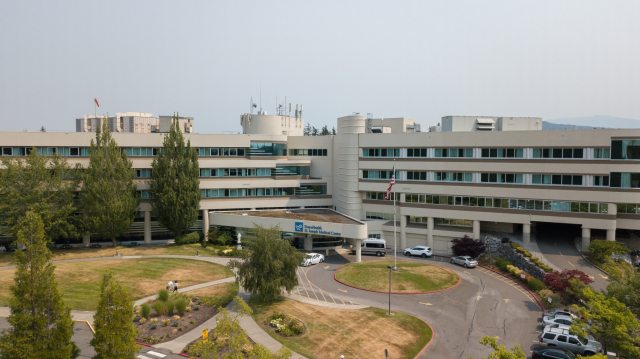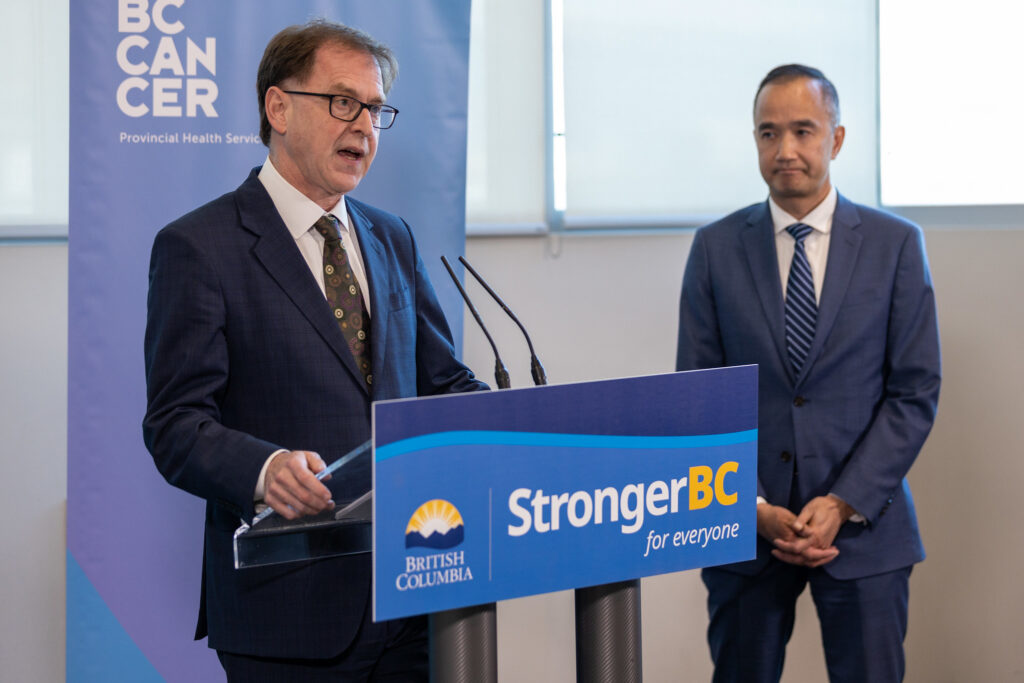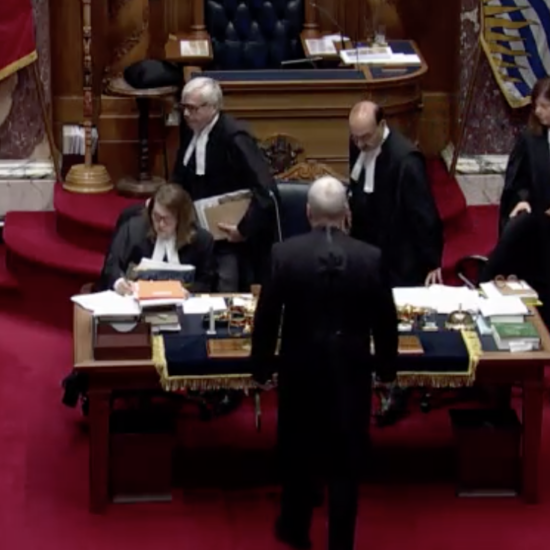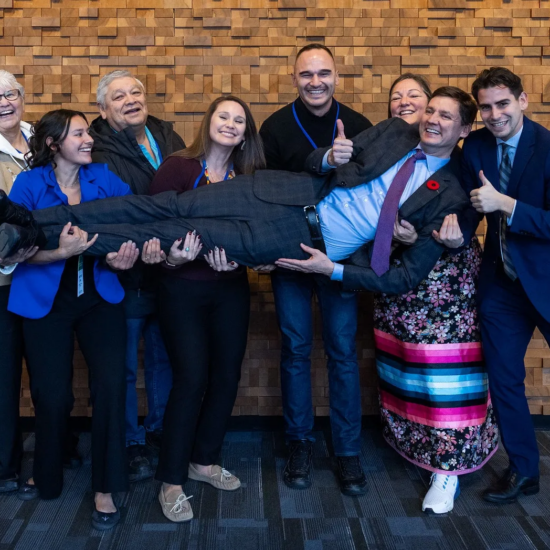
Bob Mackin
The company operating one of the Washington State cancer clinics under contract by the B.C. government must refund millions of dollars to thousands of low income patients.
On May 15, NDP Minister of Health Adrian Dix announced that B.C. Cancer Agency had outsourced a limited number of breast and prostate radiation treatments to two clinics in Bellingham — PeaceHealth St. Joseph Medical Center and Bellingham Radiation Oncology (BRO) at North Cascade Cancer Center — because B.C. hospitals could not keep up with demand.

PeaceHealth St. Joseph Medical Center in Bellingham (PeaceHealth)
PeaceHealth is headquartered in Vancouver, Wash. and operates five Western Washington hospitals. On Nov. 20, Washington State Attorney General Bob Ferguson announced PeaceHealth would pay $4.2 million in direct refunds to more than 4,500 patients and up to $9.2 million to as many as 11,000 patients under a claims process.
PeaceHealth settled, without admitting wrongdoing, after Ferguson alleged PeaceHealth broke state consumer laws “by failing to screen patients for charity care eligibility prior to attempting to collect payment, failing to meaningfully disclose the availability of charity care, and collecting payment from patients who it knew were likely charity care eligible without disclosing their eligibility.”
The B.C. Cancer contract with PeaceHealth, obtained under B.C.’s freedom of information law, calls for PeaceHealth to treat up to 50 B.C. Cancer-referred patients per week, but it does not specify Bellingham or St. Joseph.
“B.C. Cancer agrees that it will select patients with either no significant underlying health conditions or medically stable co-morbidities,” states the contract with PeaceHealth.
For BRO, the cap is 15 patients per week.
However, according to documents released by the BC United opposition, only 275 patients had completed radiation therapy in the U.S. by Nov. 10 (222 for breast cancer and 53 for prostate cancer) after 533 were deemed eligible and agreeable for treatment in the U.S.
The “Out of Country Radiation Therapy Daily Report” said that 755 of the 1,288 patients who were screened had failed. The leading reasons for screening failure were wanting Canadian treatment (249), refusal of U.S. treatment (164) and not clinically suitable (163). Fifty-three patients had no travel documents and five were not Canadian citizens.
“An average of 12 patients a week have been treated in the United States,” said BC United leader Kevin Falcon in Question Period on Nov. 28. “It’s not even close to the over 50 patients per week that the NDP contracted with U.S. hospitals for.”
“We wanted to have that capacity, and patients in the hundreds have gone to the United States and got that treatment,” said Health Minister Adrian Dix. “It just shows our determination to act in every element of cancer care.”

Health Minister Adrian Dix (left) and B.C. Cancer Agency head Kim Chi (Flickr/BC Gov)
How much did B.C. Cancer agree to pay for each treatment?
That is a secret, because the prices were censored from both contracts.
The Ministry of Health and B.C. Cancer have not responded to questions about the contracts, including the total amounts paid so far.
Payment, however, is required in U.S. dollars within 30 working days of each invoice.
The contracts also require the two clinics review a patient referral request on the same day a referral is made and at all times within 48 hours from the time a referral is made.
B.C. Cancer committed to obtain consent from each patient prior to sending medical records. Both clinics agreed to ensure all physicians providing medical treatment maintain federal and state licensing and certification. They both agreed to maintain CAD$3 million commercial liability and CAD$5 million professional liability insurance and to indemnify, defend and hold harmless B.C. Cancer against any claims and judgments for liability and negligence.
The two-year contracts will not automatically renew and either party may terminate with or without cause, and without penalty or premium, with 30-days prior written notice. If the agreement is breached and the breach remains uncured, the written notice period is 15 days.
The clinics also agreed to comply with all applicable privacy laws and promptly notify B.C. Cancer no later than five days after discovery of any security incident or breach of unsecured personal health information. They also agreed to co-operate with B.C. Cancer and provide necessary assistance.
The BRO contract was signed April 12 by Dr. Alexei Polishchuk, whose bio said he grew up in Vancouver, was educated at Princeton University and University of Pennsylvania and joined BRO in 2016.
It is not unusual for a government body to claim disclosure of a contract will harm the government financially and damage a third-party’s interests. But multiple rulings by adjudicators from the Office of the Information and Privacy Commissioner (OIPC) have upheld the public’s right to know and required full disclosure of contracts negotiated between private entities and public bodies.
In 2017, the OIPC ordered Provincial Health Services Authority to release its contract with medical waste collector Stericyle. That was three years after the OIPC ordered Vancouver Coastal Health Authority to release its contract with hospital catering company Compass Group.
Despite Dix announcing the program to send cancer patients across the border, the Ministry of Health refused to release copies of the contracts after payment of the $10 non-refundable application fees last May.
Instead of simply transferring the requests to B.C. Cancer, it told a reporter to make new applications and pay the $10 fees again to Provincial Health Services Authority (PHSA), which finally released copies on Nov. 24.
PHSA is a Ministry subsidiary that relied on the Ministry, other health authorities, government reporting entities and the Medical Services Plan for $4.2 billion of its $4.6 billion in revenue last year.
Support theBreaker.news for as low as $2 a month on Patreon. Find out how. Click here.











